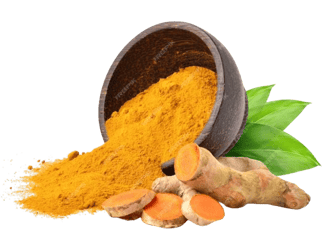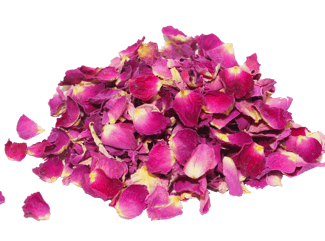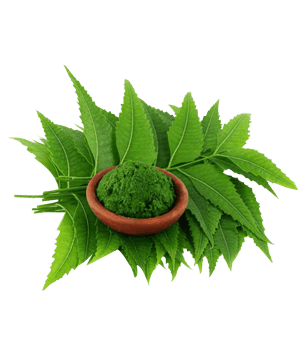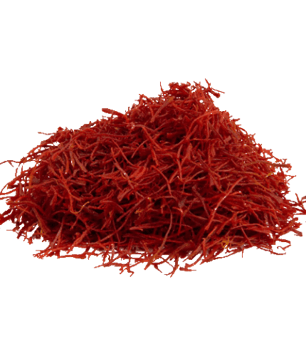

Avarampoo, also known as Cassia auriculata or Tanner's Cassia, is a traditional Ayurvedic herb known for its skincare benefits.
Natural Skin Brightening: Avarampoo is rich in natural antioxidants and flavonoids, contributing to its skin-brightening properties. Regular use can help reduce dark spots, pigmentation, and promote an even skin tone.
Moisturizing and Hydrating: Avarampoo has natural moisturizing properties that help nourish and hydrate the skin. It is particularly beneficial for dry and sensitive skin, leaving it feeling soft and supple.
Anti-Inflammatory and Anti-Aging: The anti-inflammatory properties of Avarampoo make it effective in soothing skin irritations. Additionally, its antioxidant content helps combat free radicals, contributing to anti-aging effects and promoting a youthful appearance.
Detoxification: Avarampoo is known for its detoxifying properties, helping to eliminate toxins from the skin. This can contribute to a clearer complexion and improved skin health.
Anti-Acne Properties: Avarampoo has antibacterial properties that can help combat acne-causing bacteria. It may assist in reducing acne breakouts and preventing further skin issues.
Sunburn Relief: Avarampoo is traditionally used to soothe sunburnt skin. Its cooling and calming effects provide relief from sun-induced skin irritations.
Improves Skin Elasticity: Regular use of Avarampoo may contribute to improved skin elasticity, making the skin feel firmer and more supple.
Treats Skin Infections: The antimicrobial properties of Avarampoo make it effective in treating various skin infections. It can help alleviate itching and irritation associated with such conditions.
Remember, individual responses to skincare ingredients can vary, and it's always advisable to perform a patch test before applying any new substance to the skin. If you have specific skin concerns or conditions, consulting with a dermatologist for personalized advice is recommended.
Avaram Poo


Aloevera
Aloevera, a succulent plant, is renowned for its soothing and healing properties. Here are three key benefits of aloe vera for the skin:
Moisturizing and Hydrating: Aloe vera gel is rich in water content, providing intense hydration without a greasy feel. It helps moisturize the skin, making it an excellent choice for dry or dehydrated skin.
Soothing and Anti-Inflammatory: Aloe vera has natural anti-inflammatory compounds that soothe irritated skin, reduce redness, and alleviate inflammation. It is commonly used to relieve sunburns, insect bites, and other skin irritations.
Wound Healing and Regeneration: Aloe vera accelerates wound healing and supports skin regeneration. Its gel contains compounds that stimulate the production of collagen, promoting the repair of damaged skin tissues and minimizing scarring.
Sunburn Relief: Aloe vera is widely recognized for its ability to provide relief from sunburn. Its cooling effect and anti-inflammatory properties help soothe the discomfort associated with sun-exposed skin.
Anti-Aging Effects: Aloe vera is rich in antioxidants, which combat free radicals and contribute to anti-aging effects. Regular application can help reduce the appearance of fine lines and wrinkles.
Acne Treatment: Aloe vera's antibacterial and anti-inflammatory properties make it effective in treating acne. It helps reduce inflammation, soothe existing acne, and promote a clearer complexion.
Lightens Blemishes and Dark Spots: Aloe vera may aid in lightening blemishes and dark spots over time. Its skin-regenerating properties contribute to a more even skin tone.
Gentle Exfoliation: Aloe vera contains enzymes that provide gentle exfoliation, removing dead skin cells and promoting a smoother, brighter complexion.
Oil Regulation: Aloe vera helps balance oil production on the skin, making it suitable for oily and combination skin types. It hydrates without clogging pores.
Natural Skin Cooling: The gel from aloe vera leaves imparts a natural cooling sensation, making it refreshing and suitable for calming skin discomfort.
Aloe vera is generally well-tolerated, but individual reactions may vary. It is advisable to perform a patch test before applying aloe vera gel extensively. For personalized skincare advice or for individuals with specific skin conditions, consulting with a dermatologist is recommended.


Skin Radiance: Manjistha powder is known for promoting a natural radiance by helping to reduce pigmentation, dark spots, and uneven skin tone, leading to a brighter complexion.
Detoxification: It supports the body's detoxification processes, helping to flush out toxins from the blood, which can contribute to healthier and clearer skin.
Anti-Inflammatory: Manjistha exhibits anti-inflammatory properties, making it beneficial for managing skin conditions like acne and eczema by reducing redness and irritation.
Manjistha


Kuppaimeni, also known as Indian Nettle or Acalypha indica, is a plant that has been traditionally used in Ayurvedic and folk medicine. While scientific studies on its specific effects may be limited, Kuppaimeni is believed to offer several potential benefits for the skin based on traditional knowledge. Here are some of the reported benefits:
Anti-Inflammatory Properties: Kuppaimeni is thought to possess anti-inflammatory properties, which can be beneficial for soothing irritated skin and reducing redness.
Antibacterial and Antifungal: The plant is believed to have antibacterial and antifungal properties, making it potentially effective against certain skin infections and conditions.
Wound Healing: Traditionally, Kuppaimeni has been used for its wound-healing properties. It is thought to aid in the regeneration of skin tissues and promote faster healing.
Acne Control: Due to its antibacterial properties, Kuppaimeni is often used to help control acne. It may help prevent bacterial growth on the skin and reduce acne breakouts.
Skin Detoxification: Some believe that Kuppaimeni can help detoxify the skin by eliminating toxins and impurities, promoting a clearer complexion.
Anti-aging Properties: The plant is suggested to have antioxidant properties that may help protect the skin from oxidative stress, potentially contributing to anti-aging effects.
Eczema and Psoriasis Relief: Kuppaimeni is traditionally used to alleviate symptoms of skin conditions like eczema and psoriasis, providing relief from itching and inflammation.
Skin Brightening: Some people use Kuppaimeni for its potential to brighten the skin tone and reduce pigmentation, although individual results may vary.
It's important to note that while Kuppaimeni has a history of traditional use, scientific research on its specific effects is limited, and individual responses can vary. Before using Kuppaimeni on your skin, especially in concentrated forms or as part of homemade remedies, it's advisable to perform a patch test to check for any adverse reactions. Additionally, if you have specific skin concerns or conditions, consulting with a dermatologist or skincare professional is recommended for personalized advice.
Kuppaimeni


Turmeric
Turmeric, scientifically known as Curcuma longa, is a versatile spice with powerful anti-inflammatory and antioxidant properties. Here are three key benefits of turmeric for the skin:
Anti-Inflammatory Effects: Curcumin, the active compound in turmeric, has potent anti-inflammatory properties. It helps reduce inflammation, redness, and swelling, making it beneficial for inflammatory skin conditions like acne and eczema.
Antioxidant Protection: Turmeric is rich in antioxidants that neutralize free radicals, preventing oxidative stress and supporting the skin's natural defenses. This contributes to anti-aging effects and helps maintain a youthful appearance.
Brightening and Even Skin Tone: Turmeric is known for its skin-brightening properties. It can help reduce the appearance of dark spots, hyperpigmentation, and uneven skin tone, promoting a radiant complexion.
Wound Healing: Turmeric aids in the wound-healing process, thanks to its anti-inflammatory and antiseptic properties. It can help minimize scarring and promote healthier skin regeneration.
Oil Regulation: Turmeric can help balance oil production on the skin, making it suitable for individuals with oily or combination skin. It contributes to a more balanced complexion.
Treatment of Skin Conditions: Turmeric is used traditionally for various skin conditions, including psoriasis and dermatitis, due to its anti-inflammatory and healing properties.
Soothing Sensation: Applied topically, turmeric can provide a soothing sensation to the skin, making it beneficial for calming irritations and redness.
Natural Exfoliation: Turmeric has exfoliating properties that can help remove dead skin cells, unclog pores, and reveal a smoother, brighter complexion.
Acne Control: Turmeric's anti-inflammatory and antibacterial properties make it effective in controlling acne. It helps reduce the severity of breakouts and promotes clearer skin.
Sun Damage Protection: Turmeric may offer protection against sun damage and UV radiation. While not a replacement for sunscreen, its antioxidant properties can contribute to overall skin health.
It's important to note that while turmeric provides various skin benefits, it can temporarily stain the skin with a yellowish tint. Performing a patch test and incorporating it into skincare routines in moderation is advisable. If you have specific skin concerns or conditions, consulting with a dermatologist for personalized advice is recommended.


Tulsi, or Holy Basil, offers numerous benefits for the skin:
Antibacterial and Antifungal: Helps combat skin infections and prevent acne by killing bacteria and fungi.
Anti-inflammatory: Reduces redness, swelling, and irritation, making it beneficial for conditions like eczema and psoriasis.
Antioxidant-rich: Protects the skin from damage caused by free radicals, reducing signs of aging such as wrinkles and fine lines.
Cleansing: Helps purify the skin, removing impurities and unclogging pores.
Healing Properties: Accelerates the healing of minor cuts, wounds, and scars.
Moisturizing: Helps maintain skin hydration and prevents dryness.
Skin Tone Improvement: Helps in achieving a more even skin tone by reducing pigmentation and dark spots.
Acne Treatment: Reduces the appearance of pimples and prevents future breakouts by controlling excess oil production.
Soothing: Provides relief from skin irritation and itchiness.
Tulsi


Rose
Roses have a variety of beneficial properties, especially for skincare and health. Here are some key properties of roses:
Antioxidant: Rich in vitamins A and C, roses help neutralize free radicals, reducing signs of aging and promoting healthy skin.
Anti-inflammatory: Rose extracts and oils can reduce redness and inflammation, making them useful for sensitive and irritated skin.
Hydrating: Rose water and rose oil are excellent for moisturizing the skin, helping to keep it soft and smooth.
Astringent: Roses have natural astringent properties that can help tighten pores and tone the skin.
Antibacterial: The antibacterial properties of roses help in treating acne and preventing future breakouts.
Aromatherapy: The scent of roses has calming and mood-enhancing effects, reducing stress and anxiety.
Healing: Roses can promote the healing of cuts, scars, and burns due to their soothing and regenerative properties.
Balancing: Suitable for all skin types, roses help balance the skin's natural oils, making them ideal for both dry and oily skin.
In addition to these properties, roses are often used in various beauty and wellness products due to their gentle




Neem
Neem, scientifically known as Azadirachta indica, is a versatile plant that has been traditionally used in Ayurvedic medicine for its numerous health and skincare benefits. When applied to the skin, neem offers several potential advantages:
Anti-Inflammatory Properties: Neem contains compounds like nimbidin and nimbin with strong anti-inflammatory properties, making it effective in soothing redness, swelling, and inflammation on the skin.
Antibacterial and Antifungal: Neem has powerful antibacterial and antifungal properties, which can help combat bacteria and fungi on the skin. It is often used to address various skin infections, including acne.
Acne Control: Neem is known for its ability to control acne and pimples. Its antibacterial properties help eliminate acne-causing bacteria, and it also helps reduce inflammation associated with breakouts.
Antioxidant Protection: Neem contains antioxidants that help protect the skin from free radical damage. This may contribute to preventing premature aging and maintaining the skin's youthful appearance.
Moisturizing: Neem oil, in particular, is rich in fatty acids and vitamin E, providing moisturizing benefits. It helps nourish and hydrate the skin, making it suitable for dry or dehydrated skin.
Wound Healing: Neem promotes wound healing by encouraging the formation of collagen, which is essential for the repair of damaged skin tissues. It is traditionally used to treat cuts, wounds, and minor skin injuries.
Skin Conditions: Neem is used to alleviate symptoms of skin conditions such as eczema and psoriasis. Its anti-inflammatory and antifungal properties can help soothe itching, redness, and irritation.
Toning and Tightening: Neem helps tighten the pores and improve skin elasticity. Regular use may contribute to a smoother and more toned complexion.
Scalp Health: Neem is beneficial for the scalp. It helps address dandruff, reduce scalp inflammation, and promote a healthier scalp environment.
Natural Insect Repellent: Neem has insect-repelling properties, making it a natural choice to help keep insects and mosquitoes at bay. Neem-based products can be used as a natural alternative to chemical insect repellents.
While neem offers various skincare benefits, it's essential to note that individual responses can vary. Before incorporating neem into your skincare routine, especially in concentrated forms or as part of homemade remedies, perform a patch test to check for any adverse reactions. If you have specific skin concerns or conditions, consulting with a dermatologist or skincare professional is recommended for personalized advice


Saffron
Neem, scientifically known as Azadirachta indica, is a versatile plant that has been traditionally used in Ayurvedic medicine for its numerous health and skincare benefits. When applied to the skin, neem offers several potential advantages:
Anti-Inflammatory Properties: Neem contains compounds like nimbidin and nimbin with strong anti-inflammatory properties, making it effective in soothing redness, swelling, and inflammation on the skin.
Antibacterial and Antifungal: Neem has powerful antibacterial and antifungal properties, which can help combat bacteria and fungi on the skin. It is often used to address various skin infections, including acne.
Acne Control: Neem is known for its ability to control acne and pimples. Its antibacterial properties help eliminate acne-causing bacteria, and it also helps reduce inflammation associated with breakouts.
Antioxidant Protection: Neem contains antioxidants that help protect the skin from free radical damage. This may contribute to preventing premature aging and maintaining the skin's youthful appearance.
Moisturizing: Neem oil, in particular, is rich in fatty acids and vitamin E, providing moisturizing benefits. It helps nourish and hydrate the skin, making it suitable for dry or dehydrated skin.
Wound Healing: Neem promotes wound healing by encouraging the formation of collagen, which is essential for the repair of damaged skin tissues. It is traditionally used to treat cuts, wounds, and minor skin injuries.
Skin Conditions: Neem is used to alleviate symptoms of skin conditions such as eczema and psoriasis. Its anti-inflammatory and antifungal properties can help soothe itching, redness, and irritation.
Toning and Tightening: Neem helps tighten the pores and improve skin elasticity. Regular use may contribute to a smoother and more toned complexion.
Scalp Health: Neem is beneficial for the scalp. It helps address dandruff, reduce scalp inflammation, and promote a healthier scalp environment.
Natural Insect Repellent: Neem has insect-repelling properties, making it a natural choice to help keep insects and mosquitoes at bay. Neem-based products can be used as a natural alternative to chemical insect repellents.
While neem offers various skincare benefits, it's essential to note that individual responses can vary. Before incorporating neem into your skincare routine, especially in concentrated forms or as part of homemade remedies, perform a patch test to check for any adverse reactions. If you have specific skin concerns or conditions, consulting with a dermatologist or skincare professional is recommended for personalized advice


